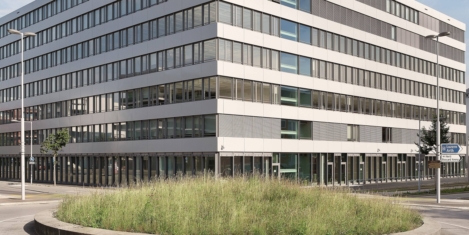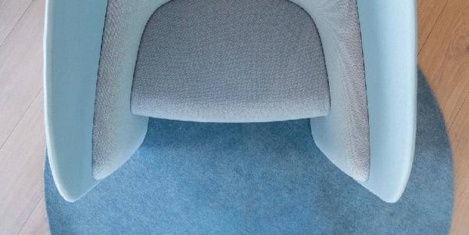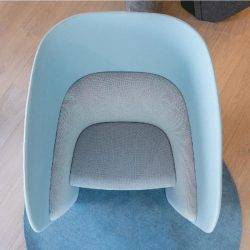To provide the best experiences, we use technologies like cookies to store and/or access device information. Consenting to these technologies will allow us to process data such as browsing behaviour or unique IDs on this site. Not consenting or withdrawing consent, may adversely affect certain features and functions.
The technical storage or access is strictly necessary for the legitimate purpose of enabling the use of a specific service explicitly requested by the subscriber or user, or for the sole purpose of carrying out the transmission of a communication over an electronic communications network.
The technical storage or access is necessary for the legitimate purpose of storing preferences that are not requested by the subscriber or user.
The technical storage or access that is used exclusively for statistical purposes.
The technical storage or access that is used exclusively for anonymous statistical purposes. Without a subpoena, voluntary compliance on the part of your Internet Service Provider, or additional records from a third party, information stored or retrieved for this purpose alone cannot usually be used to identify you.
The technical storage or access is required to create user profiles to send advertising, or to track the user on a website or across several websites for similar marketing purposes.
 The UK’s workplace happiness rating comes in at tenth in a new study published by Engaging Works. Austria, The Netherlands, United States and Germany are all above the UK in rating workplace happiness. The UK’s average happiness score of 6.43 lags behind Austria’s 7.67. Engaging Works has surveyed over 10,000 employees globally with the workplace happiness survey. Its’ founder, Lord Mark Price, is calling for the Government to face up to the UK’s poor productivity levels and understand the importance of getting the UK’s workforce more engaged and happier.
The UK’s workplace happiness rating comes in at tenth in a new study published by Engaging Works. Austria, The Netherlands, United States and Germany are all above the UK in rating workplace happiness. The UK’s average happiness score of 6.43 lags behind Austria’s 7.67. Engaging Works has surveyed over 10,000 employees globally with the workplace happiness survey. Its’ founder, Lord Mark Price, is calling for the Government to face up to the UK’s poor productivity levels and understand the importance of getting the UK’s workforce more engaged and happier.








 Over half of workers (53 percent) believe that getting the right people with the right skills will be the biggest issue faced by their workplace in the year ahead. This is according to research published by Acas today, which commissioned YouGov to find out what UK employees identified as the most important workplace issues in the year ahead. The other two top issues identified were technological change (36 percent) and productivity (36 percent). Other issues identified by participants in the poll included fit and healthy staff (18 percent) and Equality and Fairness (17 percent). Acas Chief Exec, Susan Clews, said: “Employees feel that getting workers with the right skills is a key concern in the year ahead. This could be attributed to uncertainty around our relationship with the EU at the moment or general concerns around skills shortages.
Over half of workers (53 percent) believe that getting the right people with the right skills will be the biggest issue faced by their workplace in the year ahead. This is according to research published by Acas today, which commissioned YouGov to find out what UK employees identified as the most important workplace issues in the year ahead. The other two top issues identified were technological change (36 percent) and productivity (36 percent). Other issues identified by participants in the poll included fit and healthy staff (18 percent) and Equality and Fairness (17 percent). Acas Chief Exec, Susan Clews, said: “Employees feel that getting workers with the right skills is a key concern in the year ahead. This could be attributed to uncertainty around our relationship with the EU at the moment or general concerns around skills shortages.


 Huge numbers of employees have or have had access to mission critical company systems which should be reserved only for staff that require it, claims a new study by CyberArk. Specifically, it found that almost half (48 percent) of employees have or have had access to sensitive financial documents; 46 percent to confidential HR information; nearly a third (29 percent) have or have had direct access to company bank account and over a third (37 percent) access to research and development plans or blueprints for new products/services. Credential theft remains the most common and effective route to a successful cyber-attack.
Huge numbers of employees have or have had access to mission critical company systems which should be reserved only for staff that require it, claims a new study by CyberArk. Specifically, it found that almost half (48 percent) of employees have or have had access to sensitive financial documents; 46 percent to confidential HR information; nearly a third (29 percent) have or have had direct access to company bank account and over a third (37 percent) access to research and development plans or blueprints for new products/services. Credential theft remains the most common and effective route to a successful cyber-attack.




 Over a third (35 percent) of UK workers continue to work when then get home from the office, claims research from
Over a third (35 percent) of UK workers continue to work when then get home from the office, claims research from 















December 4, 2018
I’m a designer and I job share with an AI
by Ceilidh Higgins • Comment, Technology, Workplace design
Thomas Edison is credited with the phrase “Genius is one percent inspiration, ninety-nine percent perspiration” and I believe there is no field where this applies more than architecture and design. So often people assume that interior design is such a fun, creative job – that it’s all about drawing, colours and furniture, something like being paid to colour in and shop – when today being a designer is just as much about people management, psychology, project management, documentation, checking codes and standards and managing contracts. It’s also often about a culture that expects long hours and being always available to the job. “It’s not work when you are passionate about it?” is common. But what if instead we could all work less hours and job share with our computers?
(more…)